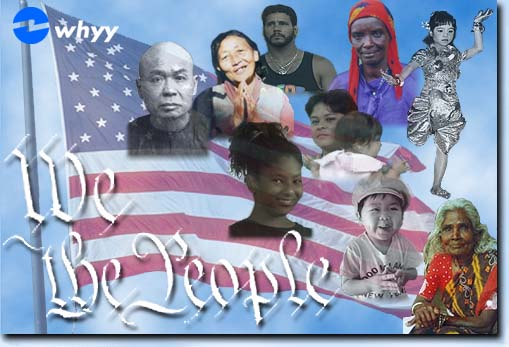|
|
LITR 5731 Seminar in Multicultural Literature: American Immigrant: model assignments 2012
|
|
Carlos
Marquina
Blocking the Dream: Latinosí Attempt to Block the DREAM Act
The DREAM Act, or the Development, Relief, and Education for Alien Minors
Act has been a hotly contested proposal for more than a decade. In the original
proposal by senators Dick Durbin and Orrin Hatch, the bill would provide
provisional permanent residency to young illegal aliens who had come to the
United States as children as long as they were of good moral character, had
graduated from a U.S. high school, or were enrolled in an institution of higher
learning or in the armed forces. Basically, it would allow the full American
Dream to individuals who have already bought into the dream of working hard,
following the rules, and getting a higher education. Yet, the bill has been
struck down time and time again in both the house and the senate. What I have
found most interesting, however, is the continuous attempts to block or change
the bill by Republican Latino lawmakers.
In the recent months, Senator Marco Rubio of Florida has become a
spokesperson for the DREAM Act. His version, however, is very limiting and does
not allow for a full path to citizenship by these young aliens. The best they
can hope for is provisional residency through student or work visas. They would
be allowed to work, study, and play a role in American life without becoming
Americans.
Republican Rep. David Rivera has recently proposed his STARS (Studying
Towards Adjusted Residency Status) Act that would allow for aliens to apply for
residency but only until they turn 19 years old. Although this bill would allow
for some young aliens to become citizens, it very narrowly limits the amount of
people that could benefit. Rep. Rivera states that his bill is meant to start
the conversation regarding immigration reform in the House of Representatives.
So over ten years after Senators Durbin and Hatch first introduced the DREAM
Act, the conversation is just about to begin?
The most interesting aspect of this debate is the immigrant background of
those involved lawmakers. Marco Rubio was born to Cuban immigrants. David
Riveraís background is very difficult to find. His website makes no mention of
any immigrant narrative, noting only that he was born in New York City and that
he has lived in Miami, Florida for 35 years. He has published articles on
US-Cuba relations. Senator Durbin was born in St. Louis to an Irish-American
father and a Lithuanian-born mother. Senator Hatch was born in Pittsburgh to
parents of English descent. His great-grandfather founded Vernal, Utah. These
four players in the immigration debate come from different immigrant
backgrounds.
As we studied through the course, we have two Old World immigrants and
two New World immigrants. Why is it that the Old World immigrants, who by
observation are fully assimilated and by color-code are clearly a part of the
dominant culture, are so open to allowing new immigrants into America and
benefiting from the American Dream? And why are the other two, who have closer
immigrant and cultural ties to the huge wave of recent New World immigrants, so
adamant in limiting the numbers of those who can legally join the American
society? Iím sure that over-generalizing the political feelings of four men to
include their entire constituency is not good, but it would seem that the
opposite should be true: that the Latino lawmakers be in favor of Latino
immigrants and that the Anglo lawmakers would be in opposition.
In a book titled Crossing Borders,
Reinforcing Borders: Social Categories, Metaphors, and Narrative Identities on
the U.S.-Mexico Frontier by Pablo Vila, Vila describes the narrative process
of identity formation along the U.S.-Mexico border. He expects to find that
people organize their identities around the axial divide of Anglo-Americans and
Mexicans along the border. Instead he finds several plots that incorporate
ethnicity, nationality and Mexican region of birth. For instance, people from
Juarez, Mexico look down upon newcomers from the south who they blame for the
cityís ills. There is also a distinction between Juarenses and Mexican-Americans
across the border, whom they regard as inferior because they have become
addicted to American consumerism. These distinctions they make on themselves,
however, are lost on Anglos who see them as any other Mexican.
I would like to explore this topic in more depth to see how the different
personal identity of immigrants affects not only their assimilation into
American culture, but how they interact with other immigrants.
Bibliography
Foley, Elise. "Dream Act: David Rivera Is First Republican To Propose
Immigration Amnesty." Huffington Post 31 05 2012, n. pag. Web. 9 Jul.
2012.
<http://www.huffingtonpost.com/2012/06/18/marco-rubio-david-rivera-dream-act-senate-house_n_1606957.html>.
Foley, Elise. "Marco Rubio Abandons Senate Dream Act-Style Bill, But David
Rivera Backs Plan For House." Huffington Post 18 06 2012, n. pag. Web. 9
Jul. 2012.
<http://www.huffingtonpost.com/2012/06/18/marco-rubio-david-rivera-dream-act-senate-house_n_1606957.html>.
Rivera, David. "Biography." David Rivera for U.S. Congress. N.p., n.d.
Web. 9 Jul 2012. <http://www.davidrivera.org/index-1.html>.
Rubio, Marco. "Biography." Marco Rubio: United States Senator for Florida.
N.p., n.d. Web. 9 Jul 2012.
<http://www.rubio.senate.gov/public/index.cfm/biography>.
Spencer, David. "Book Review:Crossing Borders, Reinforcing Borders: Social
Categories, Metaphors, and Narrative Identities on the U.S.-Mexico Frontier. By
Pablo Vila. Austin: University of Texas Press, 2000. Pp. xiv290. $42.50
(cloth); $19.95 (paper).." American Journal of Sociology. n. page. Web. 9
Jul. 2012. <http://www.trinity.edu/dspener/publications/vila-review.pdf>.
Wikipedia contributors. "DREAM ACT." Wikipedia, The Free Encyclopedia.
Wikipedia, The Free Encyclopedia, Web. 9 Jul 2012.
<http://en.wikipedia.org/wiki/DREAM_Act>.
Wikipedia contributors. "Dick Durbin." Wikipedia, The Free Encyclopedia.
Wikipedia, The Free Encyclopedia, Web. 9 Jul 2012.
<http://en.wikipedia.org/wiki/Dick_Durbin>.
Wikipedia contributors. "Orrin Hatch." Wikipedia, The Free Encyclopedia.
Wikipedia, The Free Encyclopedia, Web. 9 Jul 2012.
<http://en.wikipedia.org/wiki/Orrin_Hatch>.


